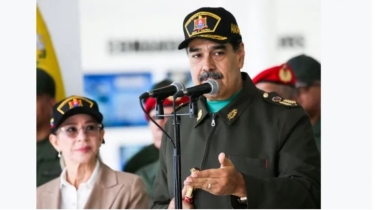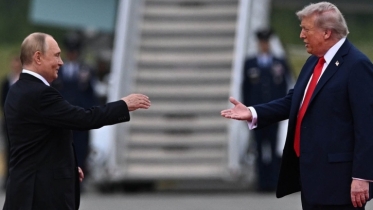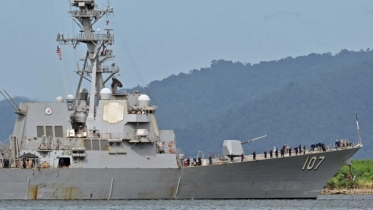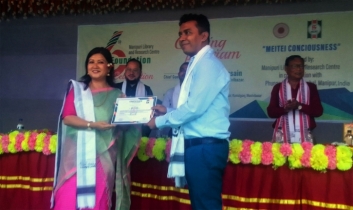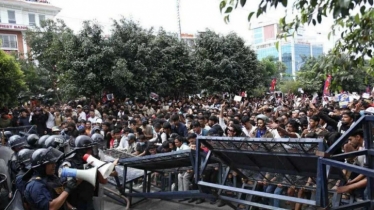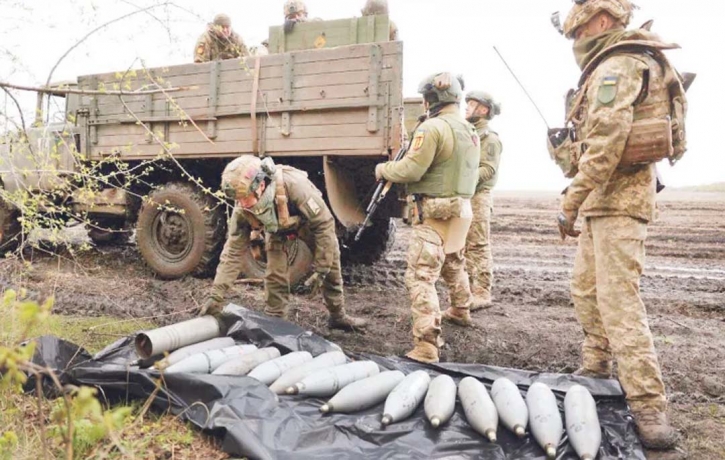
In Lithuania, Latvia, and Estonia — three Baltic states on the edge of the European Union that all share a border with Russia — defense is a key concern.
All the more so, since Russian President Vladimir Putin launched a full-scale attack on Ukraine in February 2022. According to Nato statistics, the defense spending of the three states greatly exceeded the minimum 2% of GDP in 2023, and it is expected to rise this year.
Even though the three are exemplary member states in their commitment to Nato, whose forces are deployed in each countries, their military commands and governments believe that more needs to be done to prepare for a potential invasion from the east.
The idea is to boost the defense industry by setting up ammunition factories in the Baltics, amid shortages due to Russia's ongoing war in Ukraine. Apart from the governments themselves, the European Commission will be investing in the project, as will German arms manufacturer Rheinmetall.
Ammunition is considered a crucial variable for measuring how long the three Baltic states could withhold an attack. The war in Ukraine has reduced the ammunition reserves of the Baltic states, which are strong supporters of Kyiv. The increased demand for ammunition has led to a shortage of supplies in the EU.
Indrek Sirp from the Estonian Defense Ministry told DW that even before the war in Ukraine, the importance of ammunition had been emphasized.
"You can have a proud force and many weapons, but if you have nothing to use them, then at some point the weapons will no longer be of any use," he said.
He added that to be "believably ready" to defend one's country, ammunition was needed not for a couple of days but for much longer.
Rheinmetall plans major investment in Lithuania
On Monday, the Lithuanian authorities announced that they had signed an agreement to the tune of €180 million with Rheinmetall to build a new factory, which will produce 155-millimeter artillery shells.
Armin Papperger, CEO of Rheinmetall AG, said in a press release that this proved that the German company was one of the pillars of national and international security provision.
Rheinmetall is already active in Lithuania, where it has operated a maintenance center with defense company Krauss-Maffei Wegmann since 2022.
The site of the new ammunition factory is expected to be announced in the upcoming weeks. It will provide 150 jobs and produce tens of thousands of artillery shells each year.
Lithuanian Vice-Minister of Economy and Innovation Erika Kurockina told DW that there was an urgent need for such 155-millimeter munitions as the stockpiles were empty. She said that the factory would provide for Lithuanian needs, as well as for exports, to help support Ukraine, for example.
She hoped that the fact that Rheinmetall was investing on such a major scale in Lithuania would send out signals that the Baltic states were safe to others.
"It is very important to make such investments because we don't have our own big facilities as Germany or France for traditional defense industry, but we would have a strong niche competency," she said.
But she insisted that there was not a race between the Baltic states, which were cooperating and strengthening their joint capabilities: "The fact that all three Baltic countries are investing in munition plants is a part of the Baltic security and deterrent strategy."
State-funded defense industry park in Estonia
Sirp said that Estonia was planning to build a defense industry park where companies would be able to set up production factories. The state would provide the infrastructure for companies to start production of ammunition and other military goods.
"We estimate that by the end of 2026, things could be so far that the basic infrastructure is ready, and the primary production facility of some companies is up and running, if everything goes well," he told DW.
He said that the aim was to be able to provide for the needs of the Estonian Defense Forces and also to have export capability for economic feasibility, adding that the lessons from Ukraine had shown that armies needed a lot of ammunition to be successful in a war.
Estonia, he said, needed to spend a minimum of €1.5 billion on different forms of ammunition and domestic production would be good for the economy:
"If we talk about ammunition spending, today all this money moves out of Estonia, today we have no production at all, only some components are produced. Local production revives the economy and creates jobs, Lithuania and Latvia also clearly see an opportunity to increase their production capabilities."
He pointed out that right now Europe could produce 1 million artillery shells per year and said that there must be continued growth to help Ukraine. "There will be a lot of ammunition needed for the next 10 to 15 years."
Money from the European Commission
At the end of 2023, Latvia established a state-owned company called the State Defense Corporation, whose mission it is to carry out comprehensive investment management and to coordinate production-related processes, according to the Latvian Defense Ministry.
The European Commission has awarded it a €41 million grant to set up a modular powder charge production facility for artillery ammunition in cooperation with other European companies.
Latvian Defense Minister Andris Spruds told a Latvian TV channel that he expected a munitions plant to be operational by the end of this year. He said that its primary objective was to provide ammunition for Latvia's own needs.

